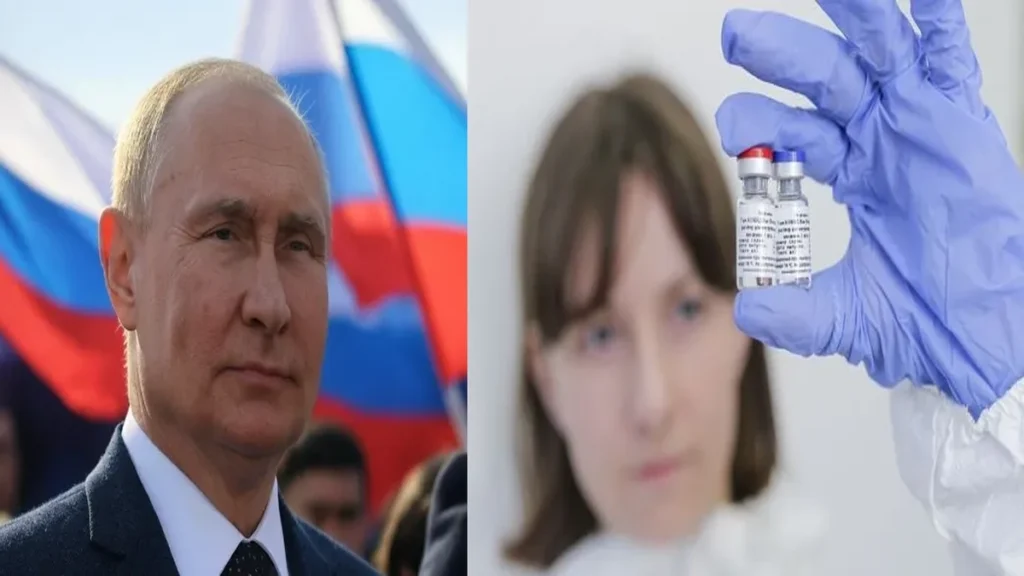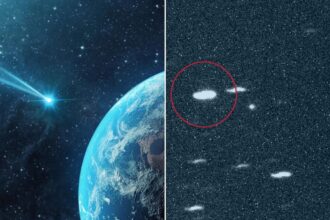
In a groundbreaking move that could reshape global cancer treatment protocols, Russia has initiated free mRNA cancer vaccine trials targeting melanoma a deadly form of skin cancer. Spearheaded by the prestigious Gamaleya National Research Center for Epidemiology and Microbiology, the initiative brings together personalized medicine, artificial intelligence (AI), and cutting edge mRNA vaccine technology.
This marks Russia’s most ambitious venture into therapeutic oncology, aiming not just for scientific achievement but for accessible, life saving treatment for thousands of cancer patients. With the goal of making the mRNA cancer vaccine free for eligible patients, Russian authorities plan a broader public rollout by the end of 2025.
What Is the mRNA Cancer Vaccine?
Unlike conventional cancer treatments like chemotherapy and radiation, which often attack both healthy and cancerous cells, mRNA cancer vaccines are designed to instruct the body’s immune system to identify and destroy cancer cells with high precision. These vaccines use messenger RNA (mRNA) a genetic material that instructs cells to produce proteins to generate an immune response specifically tailored to a patient’s unique tumor profile.
The mRNA approach became globally recognized during the COVID-19 pandemic with the success of Pfizer-BioNTech and Moderna vaccines. Now, this revolutionary platform is being extended to oncology, marking a paradigm shift in cancer treatment.
AI Driven Personalization of Vaccine A Game Changer for Future
One of the most innovative aspects of Russia’s new cancer vaccine is its AI powered neoantigen identification system. Neoantigens are unique proteins produced by cancer cells that differ from those in normal cells. Using AI algorithms, researchers at Gamaleya can rapidly analyze a patient’s tumor and design a personalized mRNA vaccine that trains the immune system to recognize and destroy those tumor specific antigens.
“We can go from tumor biopsy to vaccine production in just seven days,” said a senior scientist from the Gamaleya Center. “This speed allows us to intervene at critical windows of treatment and significantly improve patient outcomes.”
Clinical Trials and Accessibility
The mRNA cancer vaccine trials have officially entered the human testing phase. The first group of volunteers, all diagnosed with late-stage melanoma, have already begun receiving the personalized injections.
These early trials will evaluate:
- Safety of the vaccine
- Immunogenicity (ability to provoke an immune response)
- Tumor regression rates
- Long term patient survival
Unlike many Western nations, where access to experimental therapies can be cost prohibitive, Russia has committed to offering the mRNA cancer vaccine free of charge to participants and eventually to all eligible cancer patients across the country.
“Healthcare is a fundamental right, not a privilege,” said an official from the Russian Ministry of Health. “This vaccine trial reflects our commitment to providing free mRNA cancer vaccine options that are both effective and equitable.”
Global Race for Cancer Immunotherapy
Russia’s move places it among a growing list of countries including the United States, Germany, and China investing heavily in cancer immunotherapy. Companies like BioNTech and Moderna are also developing personalized mRNA cancer vaccines, but the promise of free distribution gives Russia a potential geopolitical and humanitarian edge.
As the trials progress, international medical communities are closely watching for peer reviewed data and possible collaboration opportunities. If successful, Russia’s model could serve as a template for universal cancer vaccine access worldwide.
Why This Matters
Melanoma is one of the most aggressive skin cancers, responsible for over 57,000 deaths globally each year. Current treatments can be costly, invasive, and ineffective in later stages. A free mRNA cancer vaccine offers a highly personalized and targeted alternative that could transform oncology care.
Moreover, Russia’s commitment to providing the vaccine at no cost signals a shift in public health policy that prioritizes universal access to advanced medical innovations a potential milestone in global cancer care.
Key Features of the Russian mRNA Cancer Vaccine
| Feature | Details |
|---|---|
| Type | Personalized mRNA-based vaccine |
| Target Cancer | Melanoma |
| Development Institute | Gamaleya National Research Center |
| AI Integration | Yes, for neoantigen identification |
| Production Time | 7 days post biopsy |
| Trial Phase | Human clinical trials started |
| Patient Cost | Free mRNA cancer vaccine offered to eligible individuals |
| Rollout Timeline | Late 2025 (expected public availability) |
What Comes Next?
If Phase I and II trials demonstrate success, large scale Phase III trials will be conducted by mid 2026, possibly expanding to include other cancer types like lung, breast, and pancreatic cancers. Regulatory approval could follow quickly, especially if results mirror those from similar international efforts.
Russia’s proactive stance suggests that public health infrastructure and innovation are no longer mutually exclusive goals. The country is not just participating in the global health revolution it aims to lead it.
Conclusion
The launch of Russia’s free mRNA cancer vaccine trials signals a revolutionary leap in cancer care where personalized medicine meets public service. With AI integration, lightning fast production, and government funded access, Russia may soon set the benchmark for how nations should approach cancer treatment in the 21st century.
As the world watches, one thing is clear: the era of tailored, accessible cancer immunotherapy is no longer a distant dream it’s a fast approaching reality.
Stay Connected with The News Drill for more updates.
















